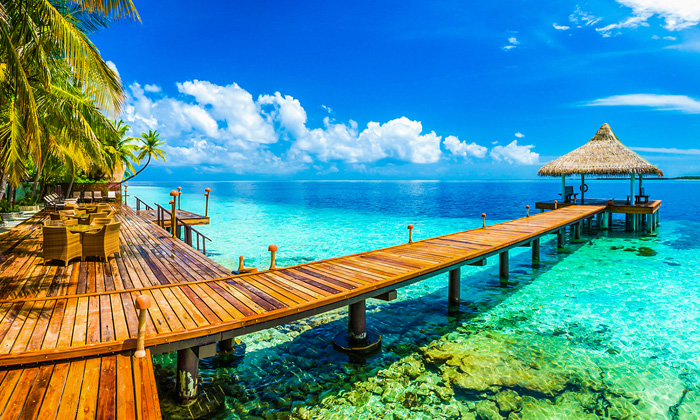
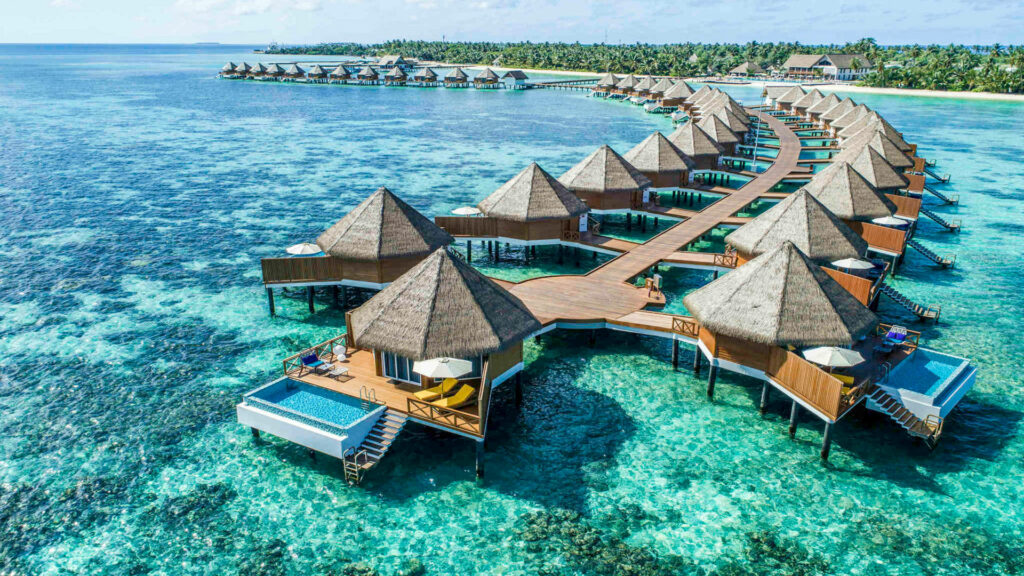
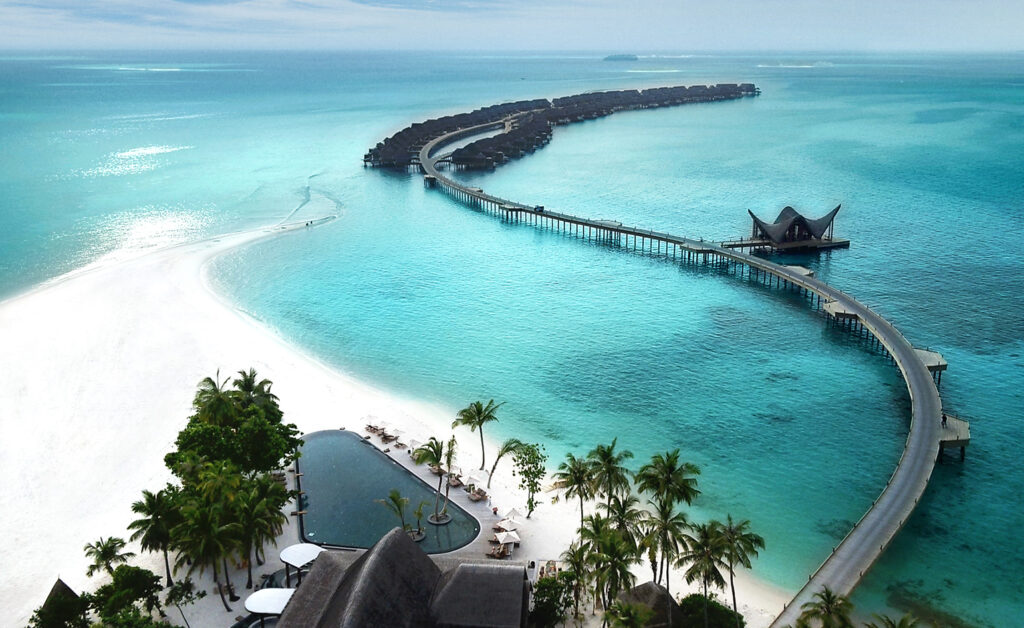
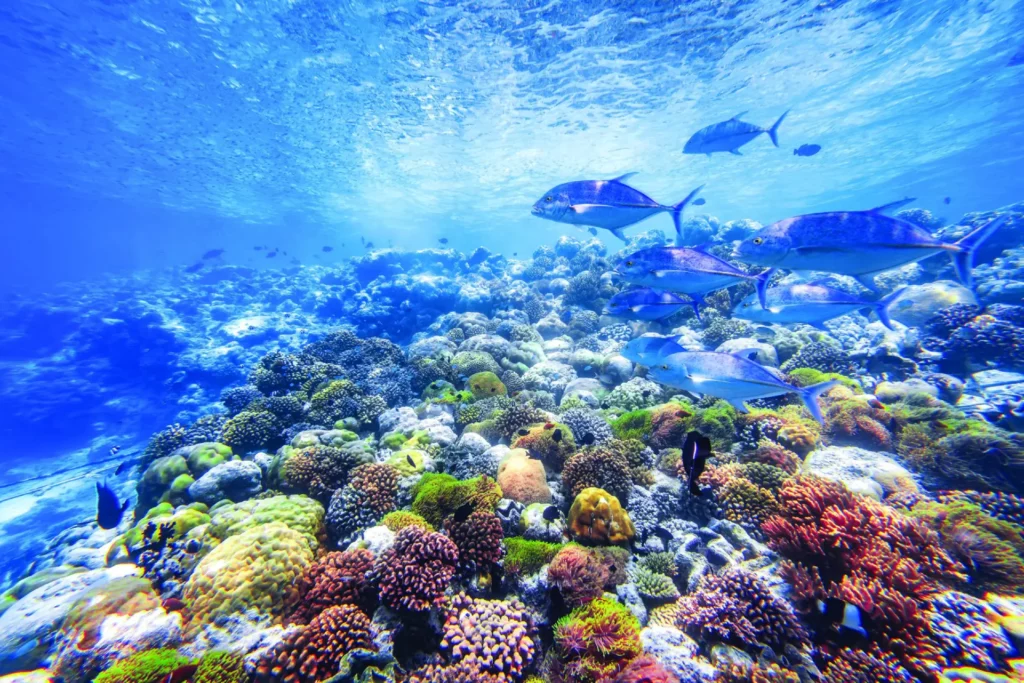
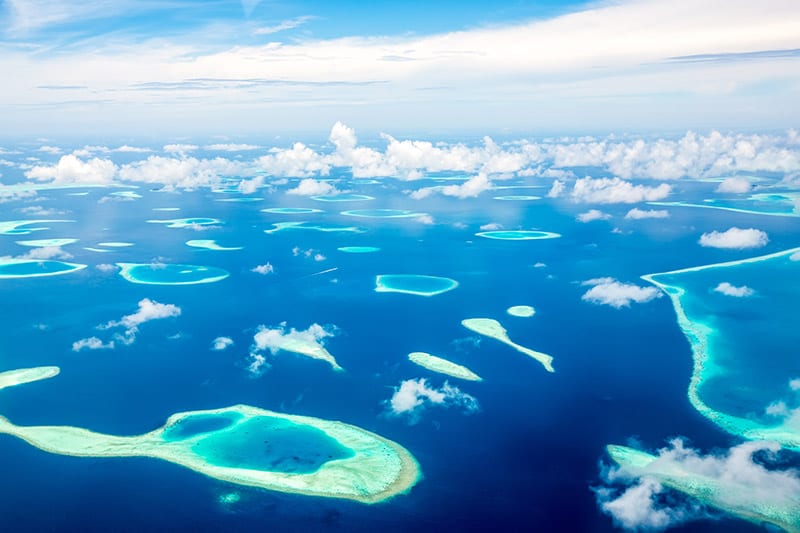
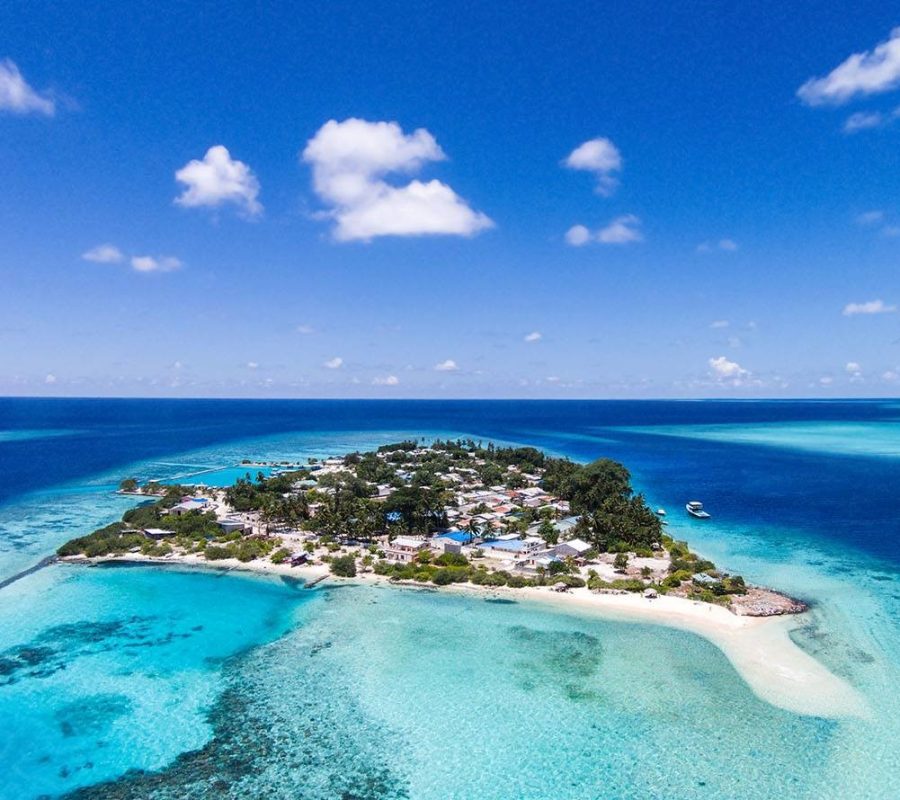
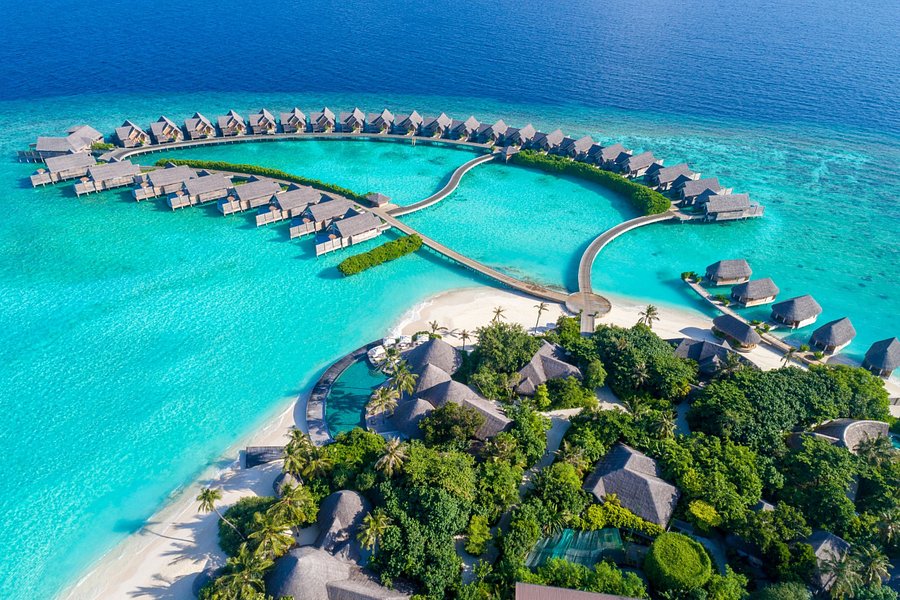

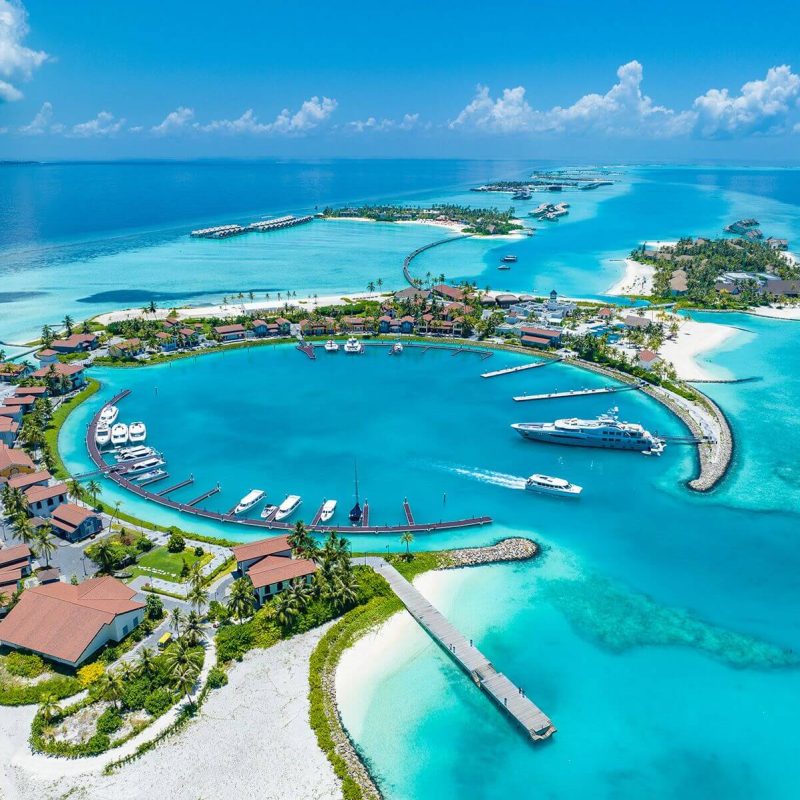
The Maldives is home to numerous conservation projects dedicated to preserving its marine and island ecosystems. One notable initiative is the coral propagation project, which involves rehabilitating damaged reefs by attaching coral fragments onto underwater frames to encourage growth. This effort is vital in the face of global warming, which poses a significant threat to coral health through bleaching events.
Marine protected areas (MPAs) have been established to safeguard key ecosystems and species, regulating activities such as fishing and diving to ensure they are conducted sustainably. These areas are essential for the conservation of biodiversity hotspots, including nurseries for fish and habitats for endangered species like the hawksbill turtle and the whale shark.
On land, reforestation projects and the protection of key habitats work to maintain the islands’ natural vegetation and provide sanctuaries for terrestrial wildlife. Educational programs and community engagement initiatives are also in place to raise awareness about environmental issues and promote conservation efforts among locals and tourists alike.
Through a combination of sustainable tourism practices and dedicated conservation projects, the Maldives is setting a global example of how human impact on natural beauty can be managed in a way that ensures the preservation and enhancement of environmental and ecosystem health. The commitment to protecting its marine and terrestrial environments reflects a deep understanding of the intrinsic value these ecosystems hold, not only for the Maldives but for the world.
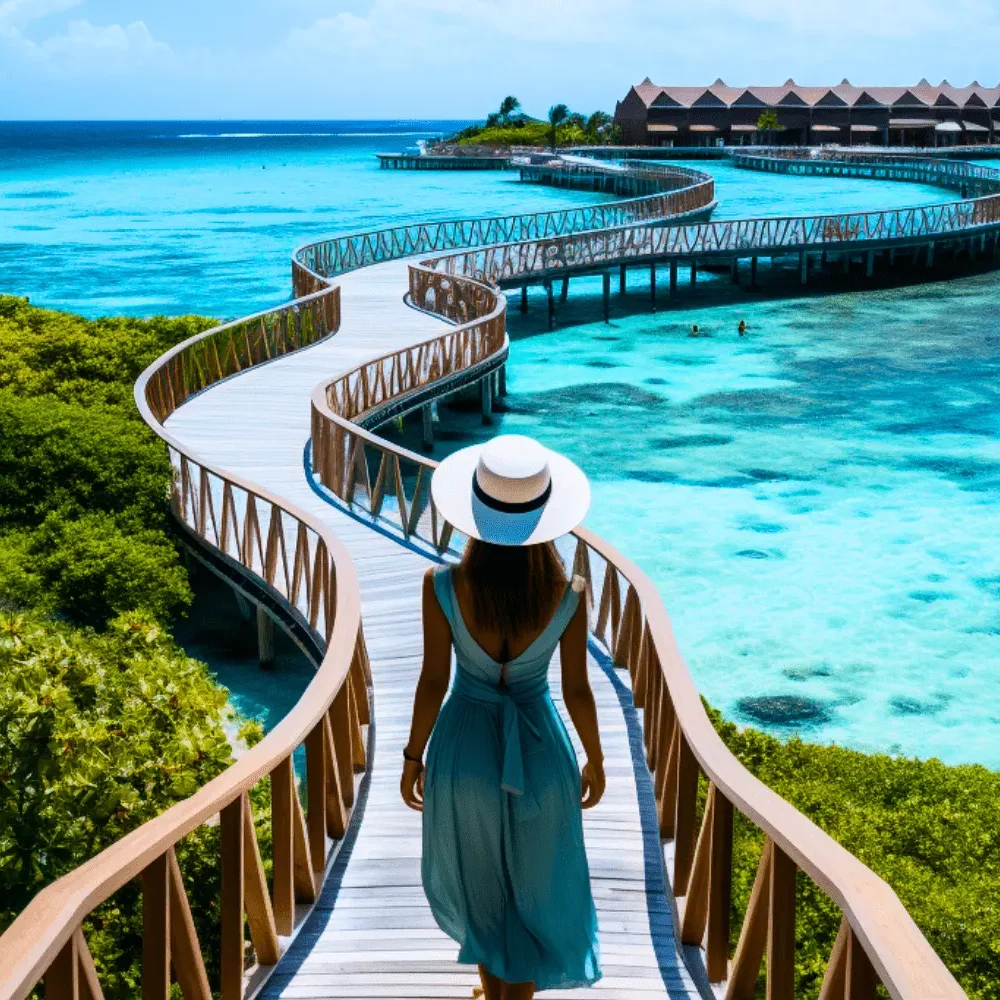
Additionally, there are emerging opportunities for economic expansion beyond these traditional sectors. The Maldives is exploring avenues such as renewable energy, particularly solar power, to leverage its geographical advantage of high solar exposure. This not only aligns with global sustainability goals but also reduces dependency on imported fuels. The information and communication technology (ICT) sector also presents potential for growth, aiming to improve public services and foster a digital economy.
This detailed exploration into tourism’s economic impact and the potential diversification of the Maldives’ economy underlines the critical importance of this sector while also pointing towards future opportunities for sustainable growth. The nation’s economic strategy, while rooted in the success of its tourism industry, shows a forward-looking approach to embracing new sectors for a balanced and resilient economic future.
The culture and traditions of the Maldives are a vivid tapestry, woven through centuries of isolation and interaction, deeply influenced by the archipelago’s geographic isolation and bounty. The Maldivian way of life, Dhivehi culture, is an amalgamation of influences from the sea that surrounds it and the traders and settlers who navigated its waters. The traditional craft of boat building, for instance, reflects the Maldivians’ intimate relationship with the ocean, with the dhoni, a type of traditional Maldivian boat, symbolizing the resilience and ingenuity of the Maldivian people.
Historically, the Maldives has been a melting pot of different cultures, with settlers and visitors from Africa, Arab countries, and Southeast Asia leaving their mark on the islands. This is evident in the Maldivian cuisine, language, and customs, which blend African, Arabic, and Southeast Asian influences. The islands’ strategic location along ancient maritime trade routes contributed to their historical significance, bringing wealth, cultural exchange, and, at times, colonial interest. Historical settlements, such as the ancient Buddhist stupas and the coral stone mosques, tell the story of a nation that has thrived amidst the challenges of island life, from the spread of Islam in the 12th century to the era of colonial rule and the establishment of a modern republic.
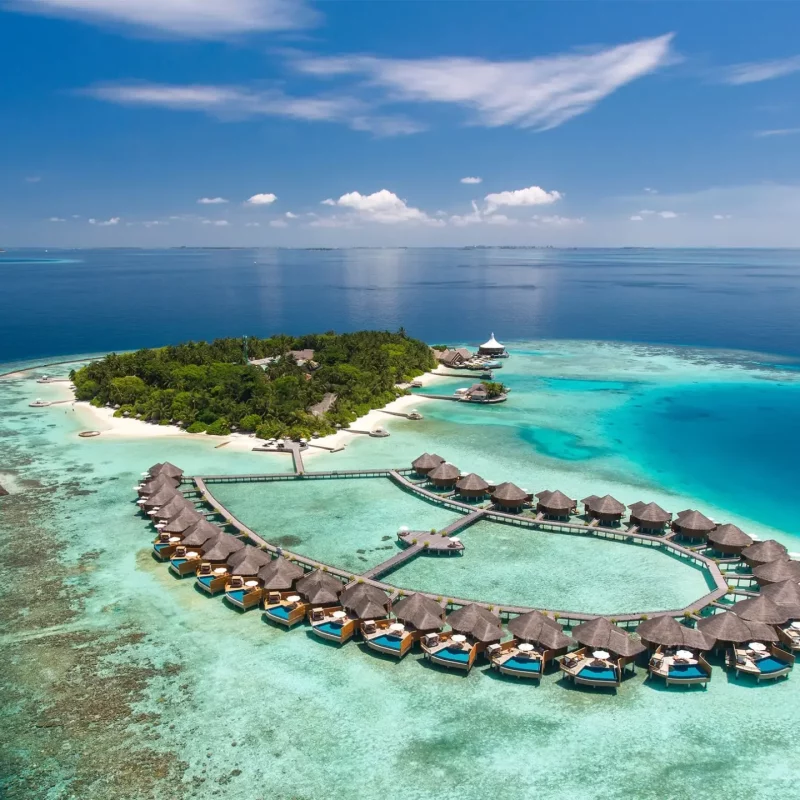
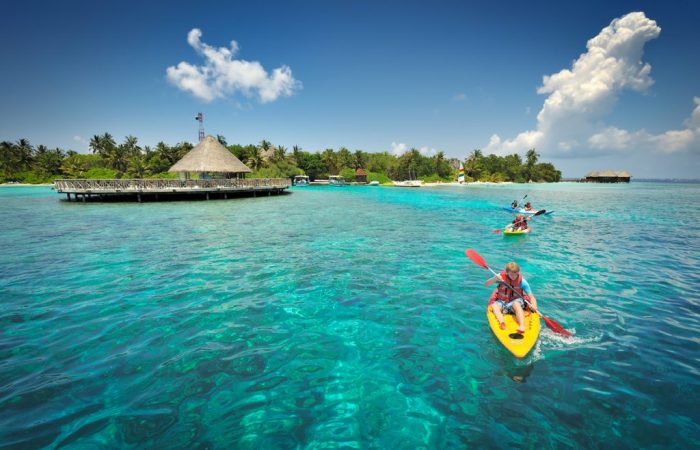
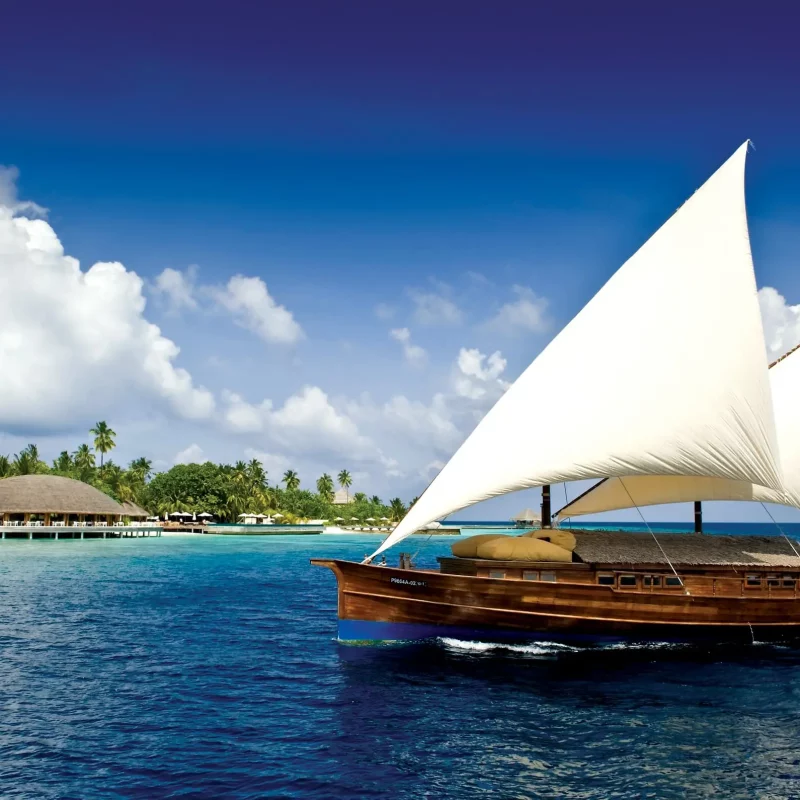
Sea-level rise is a critical concern for the Maldives, the world’s lowest-lying country, where the average ground level is just 1.5 meters above sea level. The increasing global temperatures leading to the melting of polar ice caps have escalated the threat of submerging the islands, potentially displacing thousands and erasing centuries of cultural heritage. This situation underscores the urgent need for global climate action to mitigate the impacts of sea-level rise.
Coral bleaching is another significant challenge, with rising sea temperatures stressing the coral reefs, leading to a loss of color and vitality. Since the coral reefs play a crucial role in supporting marine biodiversity, protecting the islands from erosion, and sustaining local livelihoods through tourism and fishing, their bleaching and degradation have far-reaching consequences for the Maldives’ ecological and economic sustainability.
In response to these daunting challenges, the Maldives is actively seeking and implementing strategies to secure a sustainable and resilient future. The country’s leadership in global environmental advocacy has been instrumental in bringing the concerns of small island nations to the forefront of international climate change discussions. Domestically, the Maldives is investing in adaptation strategies, such as building sea walls, implementing rainwater harvesting, and creating artificial islands, to mitigate the impacts of sea-level rise.
Conservation efforts are also a key part of the Maldives’ future outlook, with numerous initiatives aimed at protecting and restoring coral reefs, implementing sustainable fishing practices, and promoting eco-friendly tourism. The Maldives aims to balance its economic development with environmental preservation, ensuring that tourism remains a source of prosperity without compromising the natural beauty and ecological balance of the islands.
Moreover, the Maldives envisions a future where renewable energy sources significantly reduce its carbon footprint, enhancing its environmental sustainability and setting an example for other nations to follow. Education and awareness programs are being expanded to foster a culture of conservation and sustainability among residents and visitors alike.
As the Maldives navigates through these environmental challenges, its commitment to safeguarding its natural heritage and ensuring a sustainable future for the next generations remains unwavering. The strategies and visions for the Maldives’ future reflect a comprehensive approach to addressing the immediate threats while laying the groundwork for long-term resilience and sustainability. The journey ahead is complex, but with concerted global and local efforts, the Maldives aspires to remain a beacon of beauty and sustainability in the face of changing environmental landscapes.
The Maldives, with its unparalleled geographical beauty and ecological significance, stands as a testament to the mesmerizing allure of nature. This archipelago of coral islands, surrounded by the crystal-clear waters of the Indian Ocean, offers a glimpse into a world of serene beauty, vibrant marine life, and rich cultural heritage. The ecological significance of its coral reefs, diverse marine species, and unique island ecosystems cannot be overstated, serving as crucial components of our global environmental heritage.
As we marvel at the beauty of the Maldives, it is imperative to recognize our collective responsibility in preserving this paradise for future generations. Responsible tourism, which emphasizes sustainability, respect for local cultures, and conservation of natural resources, is not just an option but a necessity. Visitors and stakeholders alike must adopt practices that ensure minimal environmental impact, supporting efforts to protect and restore the natural habitats that make the Maldives so extraordinary.
The global community must also remain aware and engaged in conservation efforts, recognizing the Maldives as a vital indicator of the broader challenges posed by climate change. The plight of the Maldives in the face of rising sea levels and coral bleaching underscores the urgent need for global action to address environmental issues, ensuring that nations like the Maldives can continue to thrive and inspire.
Let us all be ambassadors for the Maldives, advocating for responsible tourism and supporting conservation initiatives that safeguard its natural beauty. Whether through educational outreach, participating in local conservation projects, or making conscious travel choices, every effort counts in the mission to preserve this jewel of the Indian Ocean. Explore the Maldives, experience its wonders, and contribute to its preservation. Together, we can ensure that the Maldives remains a beacon of natural beauty and ecological significance for generations to come.
TheMaldives.co.uk takes immense pride in our for the Maldives Government and Tourist Board, a partnership that embodies our commitment to not only boosting tourism but also enhancing global awareness of the Maldives’ unique beauty and ecological importance. Each client we have the privilege of guiding to the Maldives plays a pivotal role in this mission, contributing to the local economy and participating in the preservation of this extraordinary destination.
Our collective efforts, no matter how small they may seem, contribute significantly to the larger picture of sustainable development and conservation in the Maldives. Every visitor, through their engagement and support, becomes an integral part of the ongoing efforts to maintain the Maldives as a paragon of natural beauty and sustainable tourism.
We at TheMaldives.co.uk believe that together, through responsible tourism and a shared commitment to conservation, we can ensure the Maldives remains a beacon of hope and a testament to what can be achieved when we all play our part in the wheel of help. Join us in this vital endeavour, for in the grand tapestry of the Maldives’ future, every action counts, and every traveller is a thread that adds strength and vibrancy to the whole.